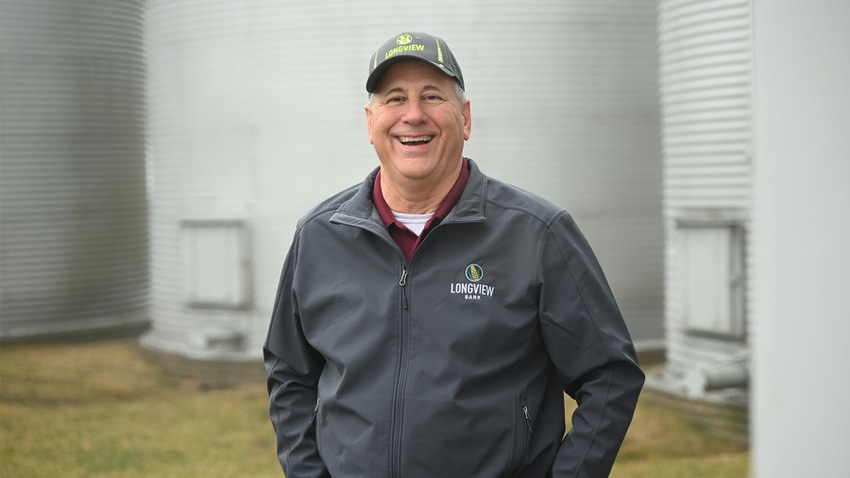
Chris Hausman is quick to defer praise.
He’ll tell you that his family farm’s success starts with the family, especially his wife and partner, Evonne. That he’s lucky the soil his ancestors happened to cultivate in southern Champaign County, Ill., is some of the most productive in the world. And that the advisers and consultants he works with make him better.
It’s all true, of course.
But Chris communicated well and faithfully followed where the Lord led. He cared for the soil and was determined to pass it along in better condition than he received it. He wisely took the advice of those trusted experts at every turn. And all along the way, he’s offered up his own skills and talents, everywhere from the Illinois Farm Bureau to the Pesotum Fire District.
Those pieces of Chris Hausman’s life set him apart, and they’ve combined to make him a 2024 Prairie Farmer Master Farmer.
“It starts with family,” he says. “Having a supportive partner is key, with common goals where everyone understands the long-term vision. It’s the foundation that was laid out by our parents, grandparents and great-grandparents.”
On the farm
To say Chris is a generational family farmer is an understatement, having been raised on the same farm near Pesotum, where his father and grandfather lived. Following his graduation from the University of Illinois in 1980, the farm wasn’t large enough to support an additional family, so Chris taught vocational agriculture for two years, and then took a job as an Illinois Farm Business Farm Management fieldman in Douglas and Clark counties.
By 1984, Chris and Evonne had the opportunity to buy their first piece of farm ground and financed the 80 acres with the Farmers Home Administration on a 40-year fixed rate loan. It was the height of the farm crisis, but they believed in their long-term investment. By 1991, they were farming full time and Chris resigned from his FBFM job — but stayed on as a client.
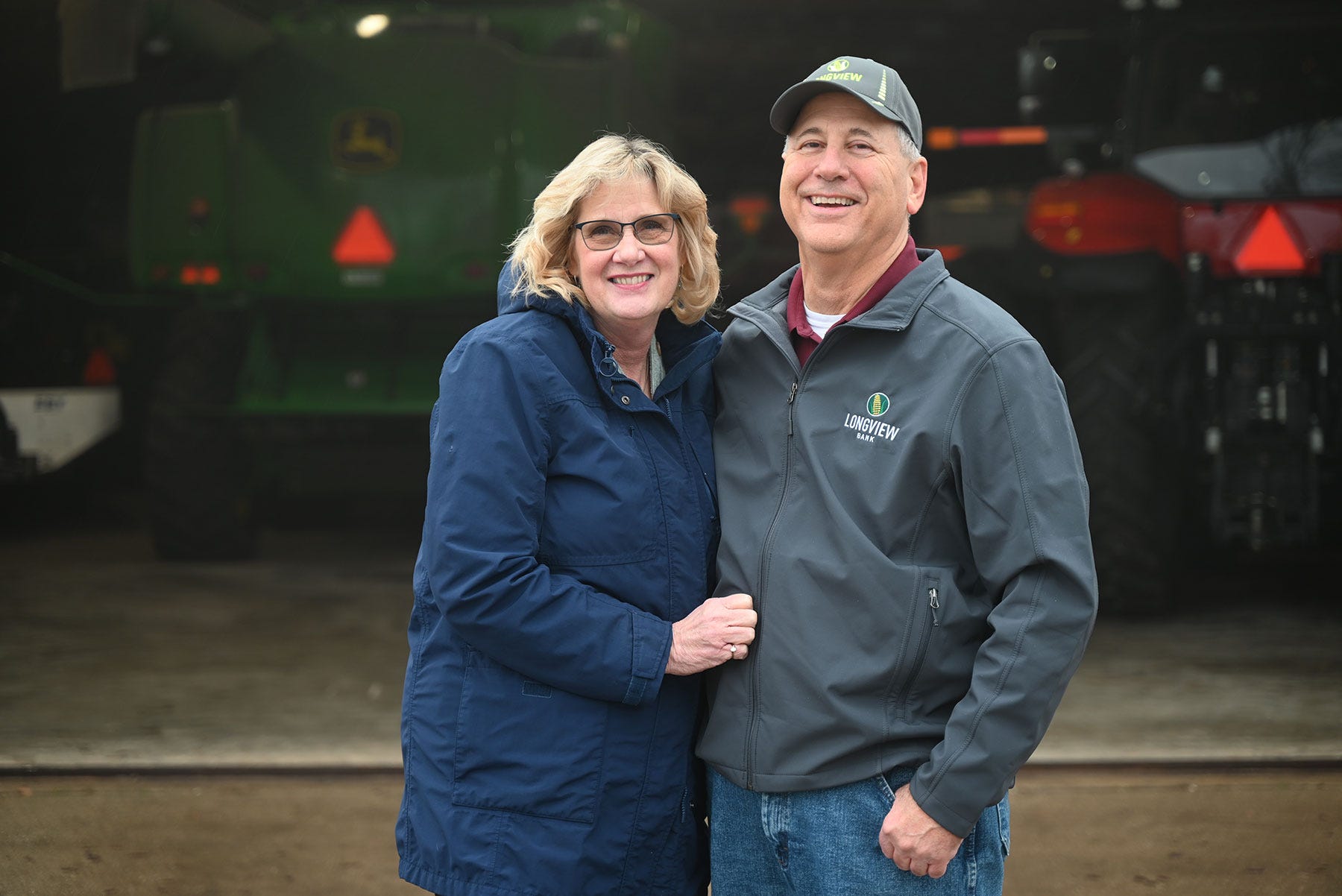
PARTNERS: Chris and Evonne Hausman met in a class at Parkland College. A farm girl herself, Evonne doesn’t mince words: “He was cute!” And she liked that he was passionate about farming.
Over time, he and Evonne grew the farm to nearly 1,500 acres, raising corn and soybeans on a 50-50 rotation, buying used equipment instead of new to build true net worth. As they bought land, they evaluated how each purchase would cash flow.
Chris developed relationships with excellent landowners in the area and grew white corn for a premium early on for Frito-Lay, then based in Sidney, Ill. He’s grown seed beans and popcorn. And he only adopted technology when it made him more efficient and had a positive return on investment. Like a lot of farmers, yield mapping taught him just how much ponding cost, and he began pattern-tiling entire farms.
Chris’ strategy also conserves resources.
Says Dan Schaefer, director of nutrient stewardship for the Illinois Fertilizer and Chemical Association, “Chris transitioned from older methods of production to a system that combined high yields, innovative practices that reduced nutrient loss to improve water quality, and a love of the soil for a more sustainable future.”
He embraced Integrated Pest Management, and was an early adopter of GPS grid sampling and variable-rate technology, reducing inputs with both practices.
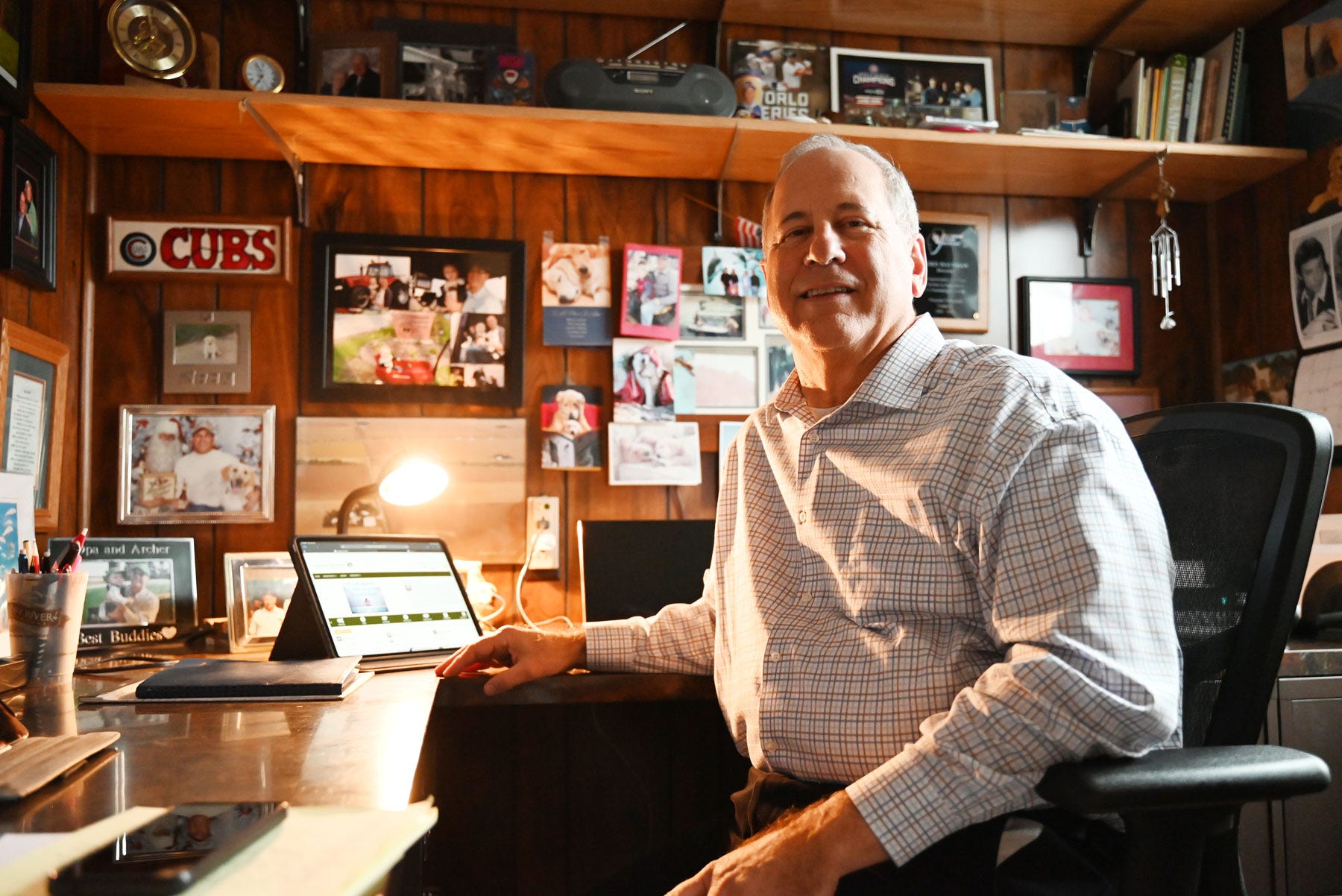
MISSION CONTROL: Chris Hausman learned through his FBFM job to never judge a farmer by appearance. “Some of my most wealthy FBFM cooperators looked like they couldn’t rub two nickels together. Then the ones you thought were most successful — brand-new home, big shed, best line of equipment — those were the ones that had to file bankruptcy.”
Then three years ago, to further reduce nitrogen loss, Chris took the advice of a farm manager and tried cover crops on a rental farm.
He planted cereal rye into 100 acres of cornstalks, with the help of Natural Resources Conservation Service cost-share dollars. By the next fall, he harvested a soybean crop with no yield drag. He quickly expanded the next year, planting 100% of his 750 cornstalk acres to cereal rye, paying Illini FS to custom-seed it.
He planted his fourth year of cover crops in the fall of 2023, reporting zero yield drag and zero regrets — even if the neighbors did wonder if he, a longtime conventional-till farmer, had lost his mind.
Nope, he says, adding he’s all in for cover crops: “You can teach an old dog new tricks!”
Today, Chris says herbicide resistance is his biggest agronomic challenge, coupled with the lack of new products coming to market. Farmers in his neighborhood are beginning to struggle with waterhemp control, especially in non-GMO soybeans.
“As an industry, we have to be very aware of the resistance issue and take steps to minimize the risk,” he adds.
Beyond the farm
All three of Chris and Evonne’s sons graduated from U of I, with advanced degrees in aerospace engineering, mechanical engineering and weed science. Matt is executive director of Braver Angels, an organization to bridge political divides, and helps on the farm. Tim is an engineer for Sargent and Lundy, and lives with his wife, Jen, and children, Archer and Teddy. The Hausmans’ youngest son, Nick, is a USDA researcher.
Chris says he learned parenthood from the best: his dad, John.
“My dad was an excellent listener. When you had a conversation with him, he truly engaged you and wanted to listen,” he explains. “I learned so much from him.”
His dad was involved in the community, too, modeling service through his time on the school board and more. The lessons went deep for Chris.
“You have to be part of the community and step up. If people don’t volunteer, our communities will suffer,” he says.
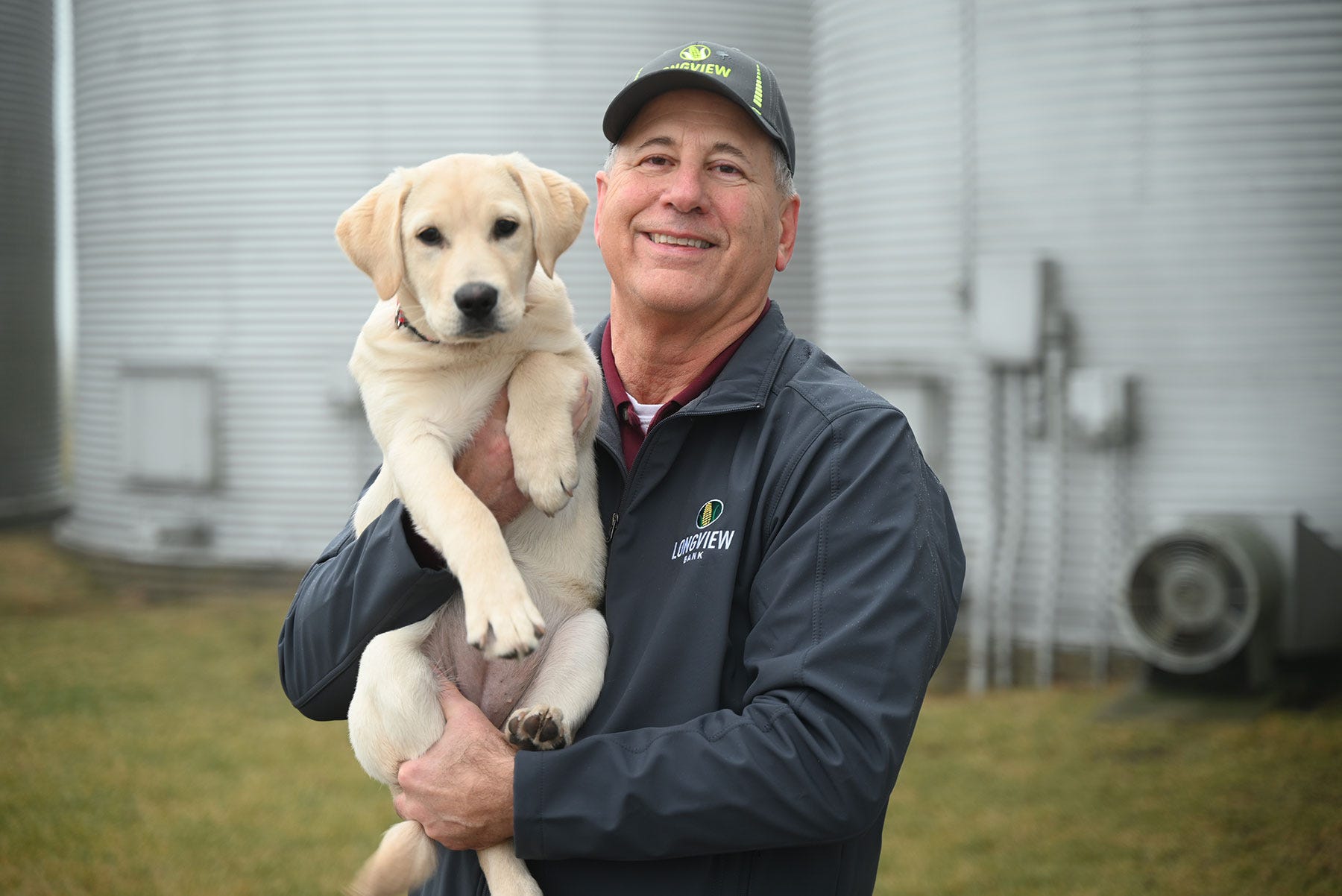
MASTER FARM DOG: Chris Hausman enjoys farming and he enjoys his dogs — like his 5-month-old yellow lab, Luna.
Evonne has helped on the farm throughout their marriage and handles all the bookwork. She grew up on a central Illinois farm and spent many years working in the U of I Animal Sciences Department.
“Chris is a good communicator, and he’s given his time and energy to all kinds of groups,” Evonne says. “We’ve had different groups come to the farm from Brazil, Kazakhstan, even U of I students. They’re always welcome at our farm, and he answers their questions, and he asks them questions.”
Chris spent 10 years as a director on the Illinois Farm Bureau board. Since retiring from that position, he began serving on the Longview Bank board, putting his financial management skills back to work with a lending organization. He and Evonne volunteer regularly with the Champaign-based organization Feeding Our Kids, providing food to food-insecure children on weekends and school holidays.
Long known as a problem solver who listens to folks, Chris remains humble while unintentionally offering the best advice for every rural community.
“I’ve tried to make whatever I was involved with better after I left,” he says.
Indeed, he has.
Illinois FBFM true believer
Chris’ approach to financial growth was shaped by his years as an FBFM fieldman in the mid-1980s — the height of the farm crisis.
“I saw what financial stress did to many farm families,” Chris recalls, adding that he sat across the kitchen table with more than one family as they resigned themselves to bankruptcy.
“We did a lot of counseling and dealing with bankruptcies and foreclosures,” he says. “Those kinds of experiences make a guy pretty financially conservative, pretty quickly.”
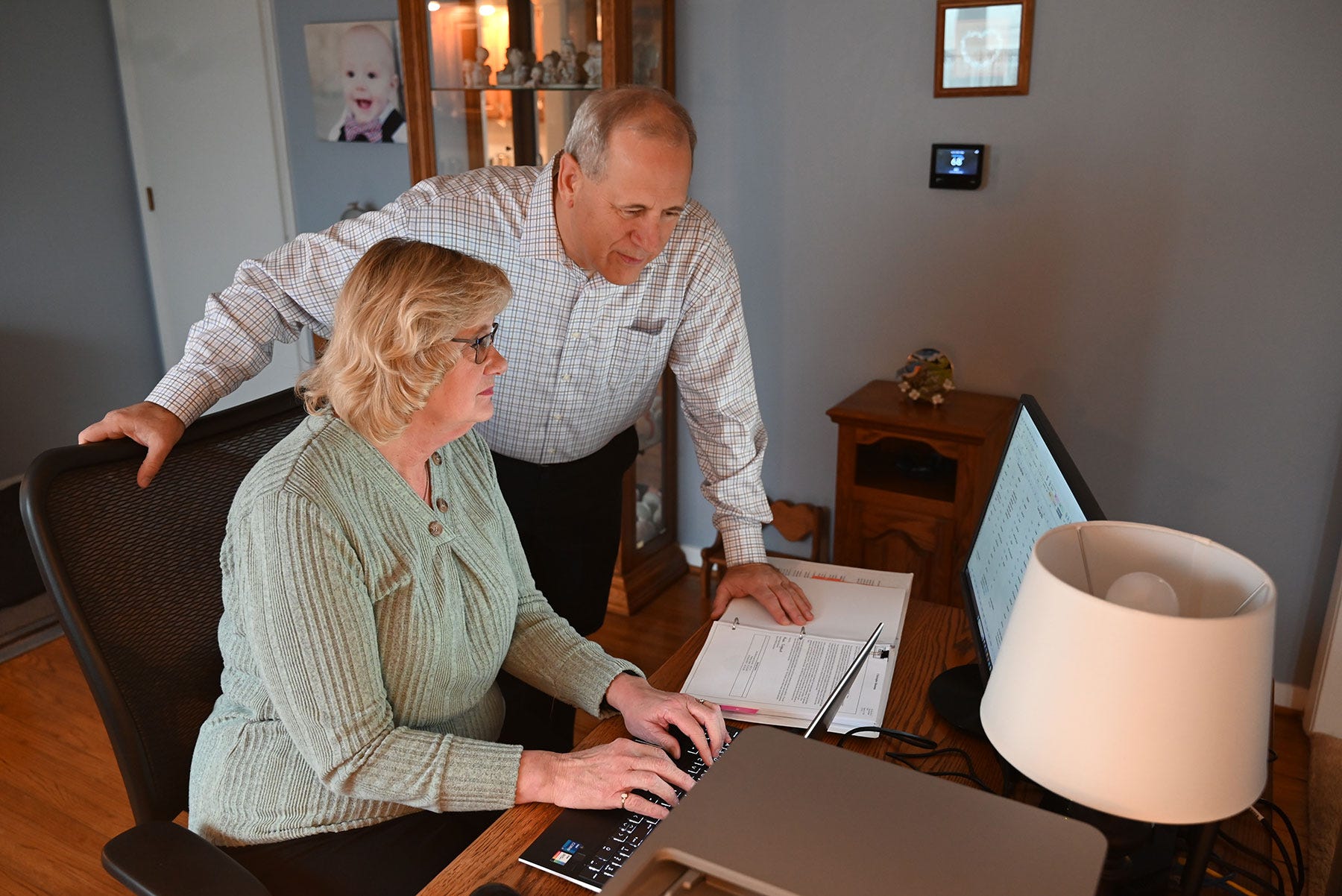
RECORDS: Chris and Evonne Hausman keep careful records and work with Illinois FBFM, thanks to his work as a fieldman in the ’80s. “That shaped us and so many of our decisions,” Chris says. “You’ve got to show me the return on investment. When you come through the ’80s, it affects you. Margins were so tight, you had to watch dollars closely.”
Chris built his operation on timely and accurate records, both cash and accrual basis, and works with Illinois FBFM as a client still today. High on a shelf in his office, a row of binders holds year after year of FBFM records — a testament to his steadfast record-keeping and desire to know how he stacks up against other operations in the state.
“I focus on net farm income and study where my strengths and weaknesses are,” he says. “You have to avoid the pitfall of balance sheets where fair market values are inflated and accrued liabilities are underreported. Earnings are more important than assets.”
Master at a glance
Chris Hausman
Wife: Evonne
Children: Matt Hausman, Tim Hausman, Nick Hausman
County: Champaign
Operation: 1,450 acres of corn and soybeans
Leadership: Illinois Farm Bureau director; Champaign County Farm Bureau president; University of Illinois Farmdoc advisory committee; Council for Best Management Practices chairman; Illinois FBFM board president; Illini FS chairman; Illinois Association of Drainage Districts board; St. Joseph Church lector, trustee; St. Joseph Cemetery trustee; Pesotum Fire District volunteer fireman; Pesotum Township supervisor; Longview Capital Corp. and Longview Bank board director; Feeding Our Kids volunteer
Nominator: David A. Albin
Read more about:
Master FarmersAbout the Author(s)
You May Also Like






